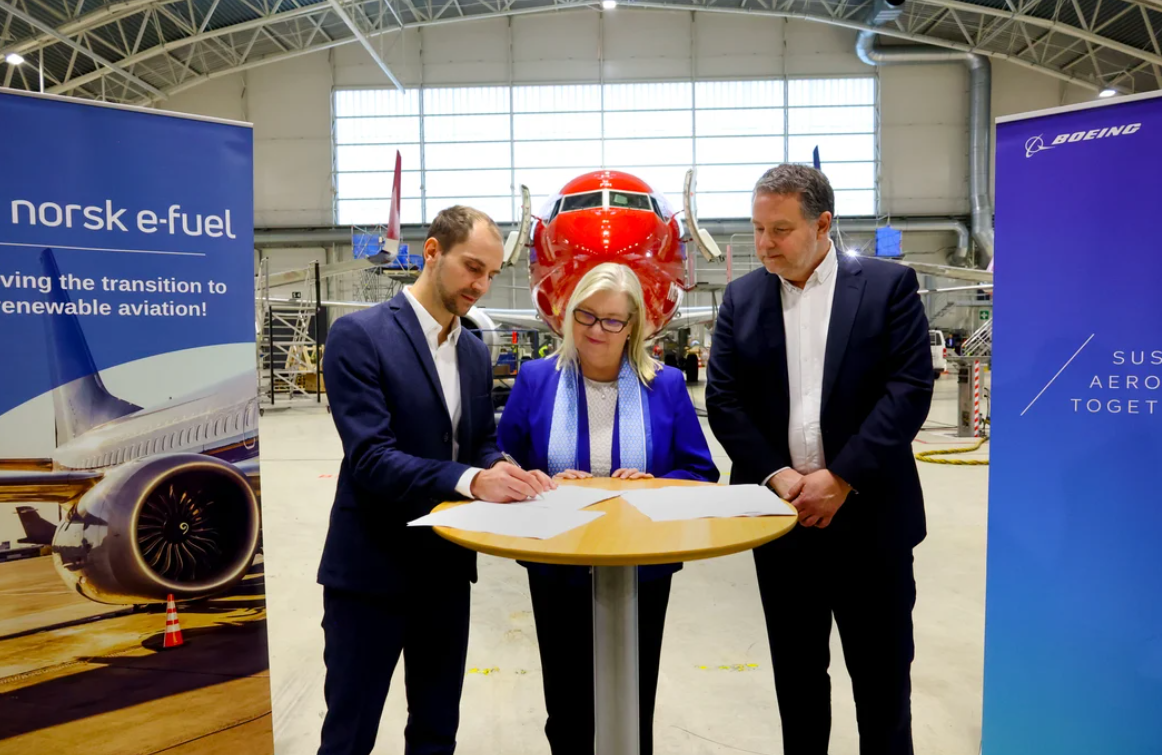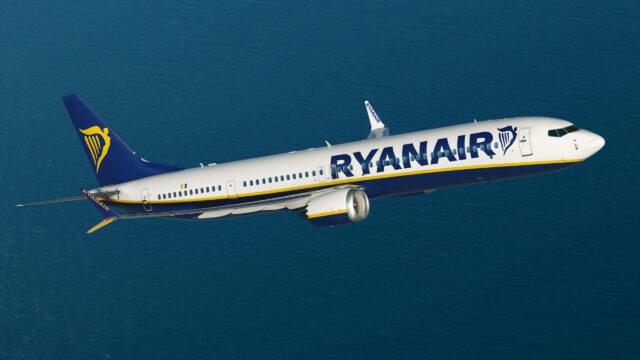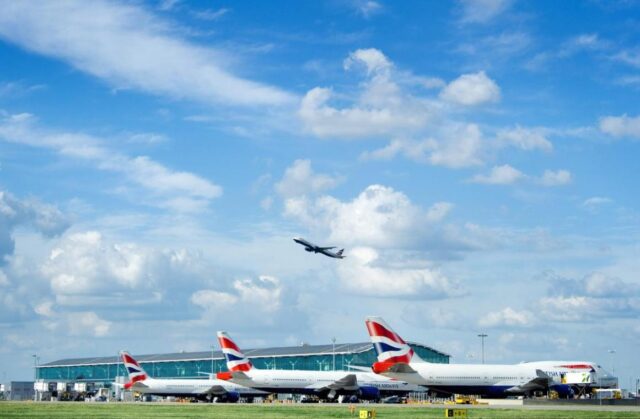Boeing and Norsk e-Fuels partner to support PtL SAF production
January 21, 2025

Boeing has partnered with Norsk e-Fuel to support “one of Europe’s first industrial scale Power-to-Liquids (PtL) facilities, an investment intended to accelerate the production and availability of next-generation SAF in the Nordic region.
Under the agreement, Boeing’s undisclosed investment will help facilitate the production of e-SAF; a strategic partnership that “combines Boeing’s SAF industry leadership and fuels expertise with Norsk e-Fuel’s technology know-how and strong network of carriers, including Norway’s largest air carrier, Norwegian,” explained Norsk e-Fuel.
Unlike HEFA-produced SAF (the most common production method for commercially available fuel today, typically employing biomass, used cooking oil or other feedstocks), PtL fuel is a synthetically produced liquid hydrocarbon. ‘Green’ hydrogen (produced via renewable energy) is combined with CO2 (captured from ambient air and other biogenic sources) via the Fischer-Tropsch pathway, with the resulting product then converted to an alternative fuel that can be blended with existing Jet-A if required.
“Our partnership to advance e-fuels will help mobilise the commercialisation of SAF in the Nordics and across the world, increasing accessibility and availability for our customers as we help build a robust SAF ecosystem,” commented Steve Gillard, Boeing’s regional sustainability director for Europe, the Middle East, Turkey, Africa and Central Asia.
With national and international mandates calling for increased use of SAF (including the Refuel EU initiative, aiming to reach a target of 6% by 2030 and 70% by 2050), demand is still far outstripping supply – with SAF accounting for only 0.53% of global commercial fuel use in 2024. However, as Norsk e-Fuel explains: “While the technologies are scaled, ready-to-use and reliable”, they are also “commercially available on the market today in larger volumes, allowing [production] to quickly scale up”.
Founded in 2019, Norsk e-Fuel intends to establish three initial industrial-scale fuel production plants, with 80% of its output allocated to the aviation industry. Of five identified sites, Norway’s Project Mosjøen – currently stated as being in the ‘basic engineering’ phase – will integrate “state-of-the-art, validated and highly innovative technologies” to produce 50 million litres of ‘e-crude’ a year. An option agreement for a 24,000 square metre site was first signed in 2022.
Although no further details have been given as to a specific site Boeing’s investment will help develop, “the location in northern Norway offers key advantages such as highly competitive and abundant availability of renewable electricity, excellent know-how due to the process industry through the historical industrial heritage, and the potential to be part of a unique hydrogen and CCU cluster in the region,” explains Norsk e-Fuels.
Norsk e-Fuels is also currently conducting concept development studies and site examination work on two further sites in Finland, each estimated to have annual production capacity of up to 100 million litres.
Norwegian, which became a shareholder in Norsk e-Fuels in January 2024, operates an exclusively Boeing fleet.
















